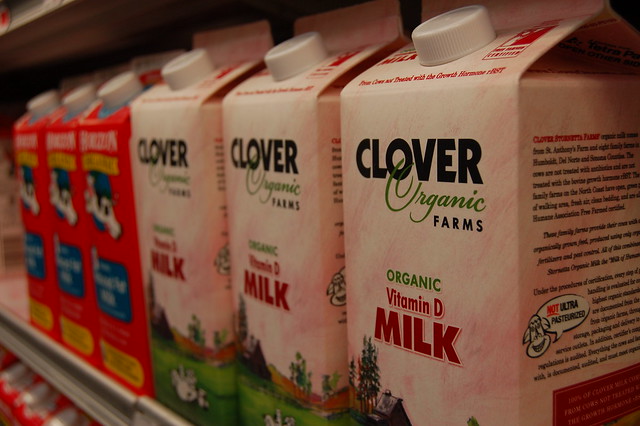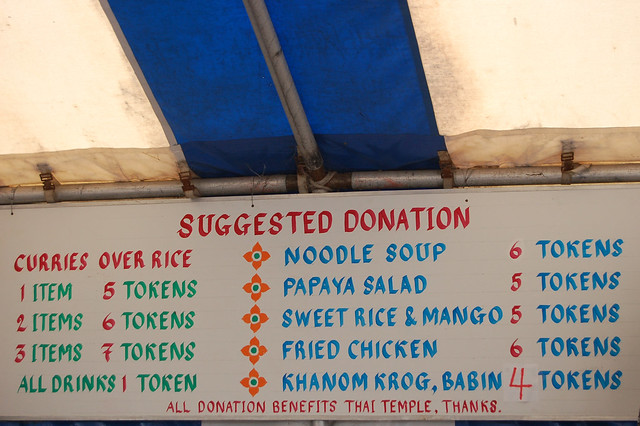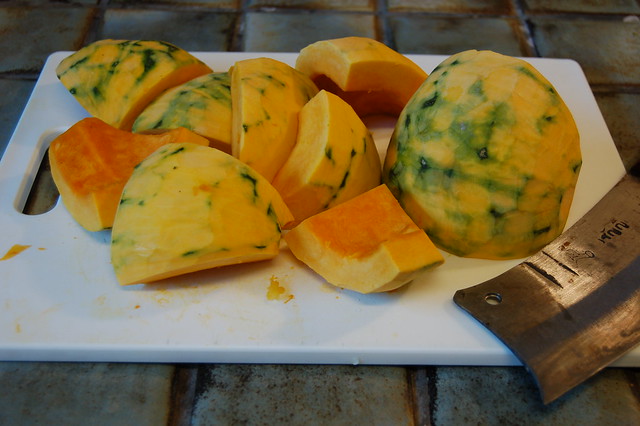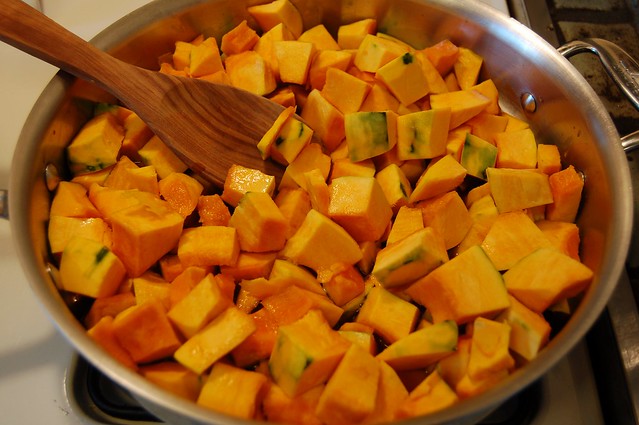Organic food has become big business, and mega-food processors have moved aggressively into the sector to cash in on the boom.
There are now significantly more organic brands and products to choose from when you go to the store than there were even a few years ago. Unfortunately, the corporations behind the majority of those products have powerful lobbyists who are working overtime to weaken the relatively new USDA organic standards in order to maximize their profits. As a result of their efforts, the "organic" label may not mean what you think it means anymore...
Since there are so many players now and the vast majority of them do not have your best interests (or the best interests of farmers, animals, or the planet) at heart, there are now a truly dizzying array of factors to consider and choices to make every time you shop. These choices are becoming increasingly complex as more and more factors beg our consideration. Since there are far too many organic food products to discuss here, I'm going to focus on one of the more basic foodstuffs - milk.
Here are a few important factors to consider in choosing your gallon of milk:
Location. Where was the milk produced and processed? As you've probably guessed, the more local, the better. Not only will you be helping to support dairy farmers in your community by buying a locally-produced gallon of milk, you'll also be saving gallons of fossil fuel that would be needed to transport the milk over state lines and sparing the environment all those pounds of climate-altering carbon that would have been emitted during transport.
Pasture-raised or grain-fed? Corn-fed cows sound very wholesome, right? Wrong! Cows' stomachs cannot actually tolerate too much corn (it will eventually kill them.) Although it's okay to feed cows some grain and you'd be hard-pressed to find a dairy that is fully pasture-fed since cows need a grain supplement during the winter/dry season, a diet of primarily corn and other grains is bad for the cows and bad for the milk you'll be drinking, nevermind that the grain was probably grown and milled in another state and had to be shipped across state lines.
Waste. All that constant munching mean that cows produce a lot of cow patties and a lot of methane gas along with them. Unfortunately, methane is one of the big contributors to our quickly-warming climate. Waste from cows also pollutes rivers, streams, and entire watersheds. So the way a dairy handles (or does not handle) the waste it produces is also an important consideration.
If you have the time, I suggest that you research the companies on offer in your local market to see where they fall on all these considerations (and while you're at it, you might as well check into their labor practices, too...)
However, if you're a normal human and don't have time to delve into these questions right now, here are a few quick suggestions to inform your dairy shopping.
 1. Do not buy Aurora Organic - this huge corporation is the organic equivalent of factory farming operations. It's important to note that Aurora supplies milk for many other private labels including Costco's "Kirkland Signature," Safeway's "O" organics brand, Publix's "High Meadows", Giant's "Natures Promise," and Wild Oats organic milk - so you should avoid buying any of these brands if possible.
1. Do not buy Aurora Organic - this huge corporation is the organic equivalent of factory farming operations. It's important to note that Aurora supplies milk for many other private labels including Costco's "Kirkland Signature," Safeway's "O" organics brand, Publix's "High Meadows", Giant's "Natures Promise," and Wild Oats organic milk - so you should avoid buying any of these brands if possible.4. Horizon Organic is better than it used to be. I had previously put these as a "definitely do NOT buy" brand but Horizon contacted me in June 2011 to
 clarify that they've made substantial changes to improve conditions at they and their family of farms - reducing herd sizes, raising their own calves, etc., These changes were made beginning in 2006 in response to consumer complaints about feedlot-like conditions at its farms. While I am skeptical about the company's commitment to organic principles, if you can't choose one of these other brands, Horizon is certainly a better option than Aurora (in any of its many guises.)
clarify that they've made substantial changes to improve conditions at they and their family of farms - reducing herd sizes, raising their own calves, etc., These changes were made beginning in 2006 in response to consumer complaints about feedlot-like conditions at its farms. While I am skeptical about the company's commitment to organic principles, if you can't choose one of these other brands, Horizon is certainly a better option than Aurora (in any of its many guises.)7. If you live in upstate New York (where I grew up), buy Ronnybrook Farms milk and products. They're a small dairy (not organic, but pesticide, hormone and antibiotic-free) that also packages in glass and uses humane, sustainable practices.
8. If you live in Brooklyn, check out the farms in this great post at Nona Brooklyn.
If there is a dairy like Straus and Ronnybrook near your town or city, please buy from them! Their prices may be a bit higher than the bigger companies (especially if you are buying milk in a glass bottle which will include a hefty, but fully refundable, bottle deposit) but it will be worth it. The milk will be better all-around -- better tasting, better for you and your
I know there are lots more brands out there than the ones I've mentioned here. If you have info on any of them (I'd be curious to know more about who supplies Trader Joe's and Whole Foods with their generic brand milk, for example) please just post a comment. Thanks!
More Ways To Green Your Kitchen




